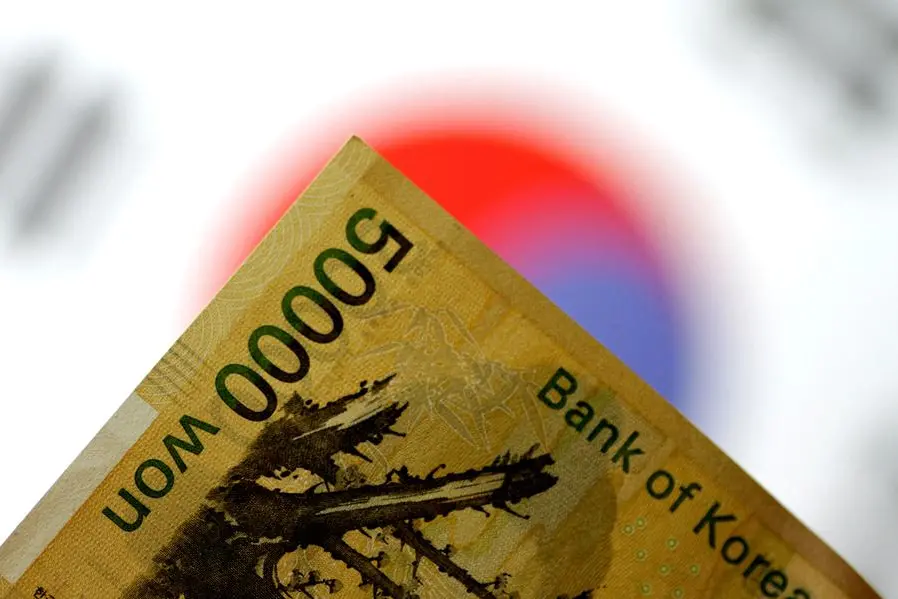PHOTO
SEOUL - South Korea's financial authorities said on Friday they would loosen foreign exchange regulations and allow more corporate borrowings abroad, in a bid to defend the won that is trading at a 15-year low with improved liquidity.
"Strict regulations restrain the efficiency of foreign exchange management, and there is a need to take into account worsened foreign exchange liquidity conditions after recent events," the finance ministry said in a joint statement with the central bank and regulatory agencies.
The South Korean won dropped on Thursday to its weakest level in 15 years, weighed down by risk-averse sentiment after the U.S. Federal Reserve's cautious stance on more interest rate cuts, as well as domestic political uncertainty stoked by President Yoon Suk Yeol's short-lived martial law order on Dec. 3 and his subsequent impeachment.
According to the statement, measures include allowing companies to take out loans in foreign currencies and exchange the funds for the won, if they are used for investing in facilities such as equipment, property and land purchases.
"It is a paradigm shift in foreign exchange policy, from regulating external debt, to inducing more foreign inflows," a finance ministry official told Reuters by phone.
Traumatised by capital flight during the 1997-1998 Asian financial crisis and the 2007-2008 global financial crisis, South Korea has had a tight grip on foreign exchange borrowings even as it has encouraged overseas investments.
At the end of September, the country held a record high of a net $977.8 billion in financial assets abroad, after turning a net creditor in 2014.
"We will continue to loosen regulations on capital inflows from the private sector unless it affects external debt or credit ratings in a negative way," the official, who did not wish to be identified because the person was not authorised to speak to media, said.
The ministry also said the ceiling of foreign exchange futures contracts would be raised to 75% of capital holdings for local banks and 375% for Seoul branches of foreign banks, from the current 50% and 250%, respectively.
"They are clearly tools for controlling the weakening pace of the local currency by easing the strain in foreign exchange liquidity," said Park Sang-hyun, an economist at iM Securities.
"But, there will be limitations, as unfavourable external conditions, from U.S. policy to China risks, are putting pressure on all emerging currencies, not just the won," Park said.
The ministry said it would implement the measures in a swift manner and consider expanding them after reviewing the effects.
(Reporting by Jihoon Lee, Yena Park and Youn Ah Moon; Editing by Jamie Freed and Muralikumar Anantharaman)





















